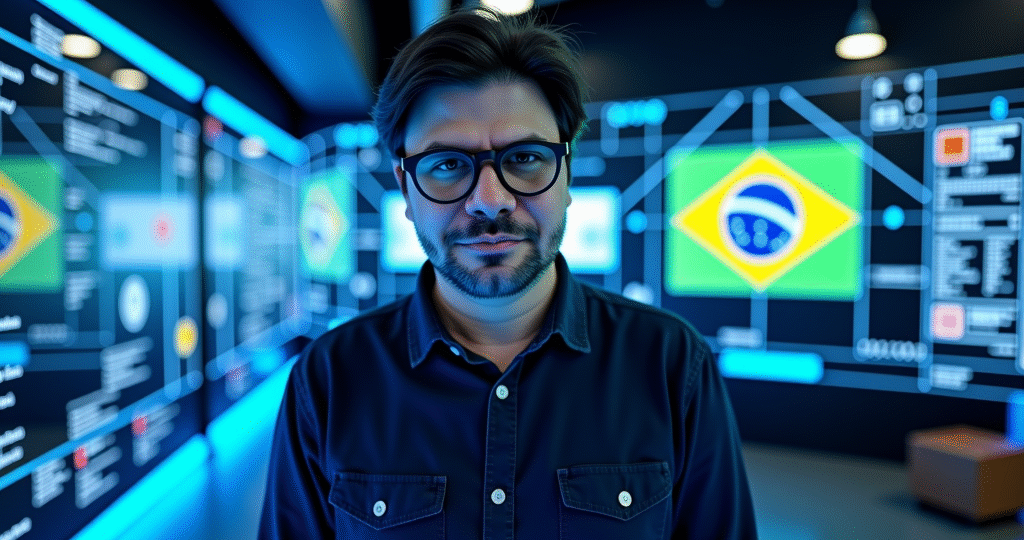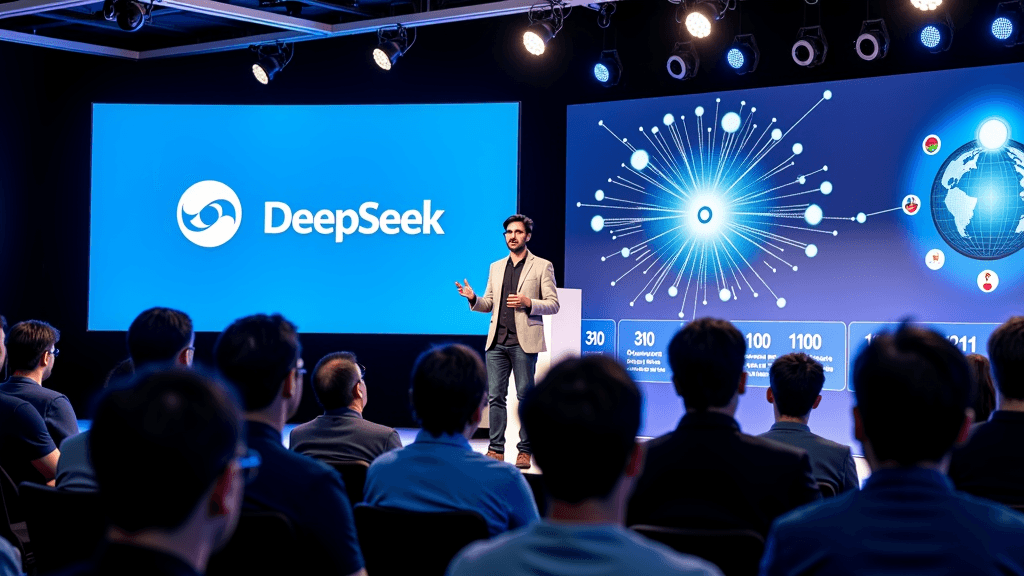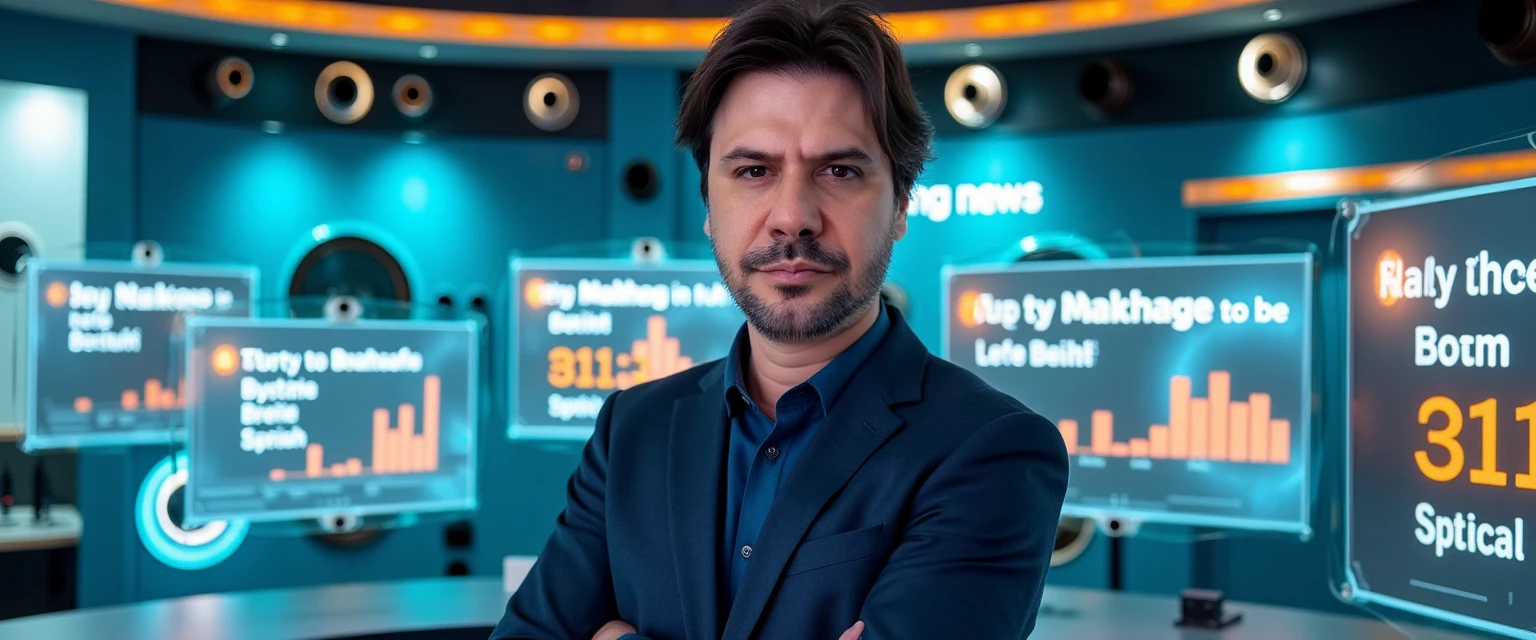BNDES Announces R$ 1 Billion for AI as Brazil Leads Global Regulation — Why This Moment is Historic
July 2, 2025 | by Matos AI

Did you know that in the last 24 hours, Brazil made two decisions that could define our technological future for the next 20 years? While the world debates the direction of artificial intelligence, we are laying the foundations for something much bigger.
The Historic Investment Few Noticed
THE BNDES and Finep have just signed a protocol which will allocate up to R$1 billion for AI projects and data centers in Brazil. But here is the detail that makes all the difference: with private capital, this investment could reach between R$2.5 and R$5 billion.
Nelson Barbosa, director of BNDES, is not joking when he talks about transforming Rio de Janeiro into a data center hub. Eletrobras is involved in the project precisely because data centers consume energy like an entire city — and Brazil has a unique competitive advantage with our renewable energy matrix.
Join my WhatsApp groups! Daily updates with the most relevant news in the AI world and a vibrant community!
- AI for Business: focused on business and strategy.
- AI Builders: with a more technical and hands-on approach.
In two decades of supporting startups, I have rarely seen an infrastructure opportunity so well positioned. We are talking about technological sovereignty, not just investment.
Brazil at the Regulatory Forefront
Meanwhile, the Ministry of Justice published Ordinance No. 961/25, regulating the use of AI in criminal investigations. It may seem like bureaucracy, but it is the opposite: it is strategy.
The ordinance prohibits remote biometric identification in public spaces (except for serious exceptions) and requires judicial authorization for confidential data. While other countries are still debating, Brazil is implementing an ethical framework that could become a global reference.
Why does this matter for startups? Because clear regulation is what differentiates mature markets from hopeless experiments. We are creating the rules of the game before the game even really starts.
The Global War for Talent Has Arrived in Brazil
THE Folha revealed that AI professionals are receiving up to US$10 million annually. Meta invested US$15 billion just to compete with OpenAI, but still has difficulty attracting and retaining talent.
Here is the Brazilian opportunity: while Silicon Valley pays fortunes to retain talent that costs more than an entire startup, we can train a generation of professionals who think differently from the beginning.
BNDES' investment is not just to attract foreign data centers — it is to create conditions for us to compete globally without having to emigrate our best brains.
The Practical Dilemmas That No One Wants to Discuss
While we celebrate billion-dollar investments, reality knocks on the door in a very practical way. UFMG professors have demonstrated that detecting AI-generated texts is practically impossible, even with tools that claim 99% accuracy.
The answer isn’t technological — it’s educational. As Raquel Freitag of UFS put it, we need to focus on “ethical, critical, and transparent learning.” UFMG created an ethics committee specifically for AI, showing that serious institutions are adapting in real time.
The Dark Side that Came to Brazil
Scammers are now using AI to create more sophisticated scams, with a 17% increase in fraud losses in Brazil in 2024. Vishing (voice scam) exploded 422% in Latin America.
It's not paranoia — it's reality. The same technology that could revolutionize medical diagnostics (like Microsoft system with 85.5% accuracy) also facilitates digital crimes.
The Environmental Account That Nobody Does
Dora Kaufman raised a crucial point in interview with UOL: AI consumes energy and drinking water in staggering amounts. Every ChatGPT query has a real environmental cost.
Here’s our competitive advantage again: renewable energy. While other countries burn coal to power data centers, we can use clean energy. It’s not just sustainability—it’s economic advantage.
Education: The Real Battlefield
Brazilian teachers are adapting methodologies to integrate AI as a pedagogical tool, not as a substitute for critical thinking.
This is what separates visionary educators from technophobes: understanding that AI will not replace teachers, but teachers who use AI will replace teachers who don't.
In my experience training thousands of technology professionals, I have seen that the best solutions emerge when we combine technical knowledge with developed critical thinking.
Tradition vs. Innovation: The Lessons of Wimbledon
Wimbledon replaces human line judges with AI after 148 years of tradition. Athletes complained about the lack of human “atmosphere”, but no one questions the accuracy of the decisions.
It’s a perfect metaphor for what we’re experiencing: **technical efficiency versus human experience**. The answer isn’t to choose a side — it’s to find the balance.
Why This Moment is Unique in History
Three factors are converging simultaneously in Brazil:
- Available capital: R$ 1 billion confirmed, potential R$ 5 billion
- Regulatory framework: Clear rules before the race starts
- Energy advantage: Renewable matrix in a world that increasingly consumes digital energy
In 25 years of following the Brazilian technology ecosystem, I have never seen a window of opportunity so well aligned. It’s not about copying Silicon Valley — it’s about creating our own model.
What This Means for Entrepreneurs
If you’re building an AI startup, this is your historic moment. Public investment will create infrastructure, regulation will provide predictability, and global demand for ethical solutions will favor those who start off on the right foot.
But be careful: **the window won't stay open forever**. Countries like China and the US are already investing tens of billions. Our advantage is that we are more agile, more ethical and more sustainable.
The Future Began Yesterday
While the Premier League signs billion-dollar partnership with Microsoft To improve the fan experience, we are building the infrastructure so that Brazilian teams can compete at the same level.
The difference between countries that lead and countries that follow is not technological — it is strategic. It is knowing when to invest, how to regulate, and where to focus limited resources.
**Brazil did three things right in the last 24 hours.** Now it's time to execute.
In my work mentoring startups and leaders, I always say: historic opportunities don’t just ring a bell. They appear disguised as everyday news, waiting for those who have the vision to see the bigger picture.
This is one of them. The question is not whether AI will transform Brazil — it is whether we will be prepared to lead this transformation.
✨Did you like it? You can sign up to receive 10K Digital's newsletters in your email, curated by me, with the best content about AI and business.
➡️ Join the 10K Community here
RELATED POSTS
View all



